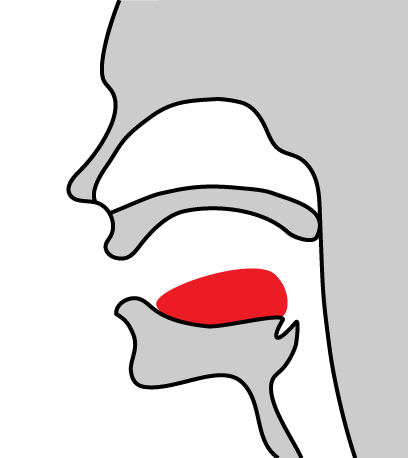
Description of the Japanese Pronunciation お
The pronunciations of Japanese vowels are determined by 3 factors; two of which are the position of your tongue, high or low (1) and front or back (2), and the final factor is the form of your mouth (3). When you pronounce お, you are going to make a circle with your mouth and raise the back part of your tongue up to the upper-middle and the back position. The shape of your mouth should be between あ and う.
Does it make sense to you? Let's try to pronounce [o] お after the tutor on the video!
Wasabi Japanese Pronunciation Lessons
Words Exercise with the Pronunciation [o] お
Please repeat the following words after the tutor on the video.
| Words | Roman Letters | Meanings |
|---|---|---|
| おく | o ku | to put |
| おす | o su | to push |
| おなか | o na ka | stomach |
| おそい | o so i | slow, late |
| おとな | o to na | adult |
| おなじ | o na zi | same |
| おととい | o to to i | the day before yesterday |
| おくさん | o ku sa n | your wife (polite) |
| しお | shi o | salt |
| あおい | a o i | blue |
Sentences Exercise with the Pronunciation [o] お
Please repeat the following sentences after the tutor in the video.
| Japanese Sentences | English Translations |
|---|---|
| 大人と同じお弁当を食べました。 | I ate the same bento box as an adult. |
| 机の上に塩を置きます。 | I’ll put the salt on top of the desk. |
| 青いハンカチを落としました。 | I dropped a blue handkerchief. |
Tongue Twister Exercise with the Pronunciation [o] お
Please repeat the following tongue twisters after the tutor on the video. Also, please focus on the pronunciation practice, not the meaning, because they were made only for the sake of practice.
| Japanese Tongue Twisters | Vocabulary |
|---|---|
|
おいおい、大人の男がおろおろするな。 |
大人: adult, 男: man, おろおろ: be upset |
|
美味しいおでんを奥で美味しいお酒と一緒に飲む。 |
美味しい: delicious, おでん: a Japanese food name 一緒: together |
|
大場さんと太田さんが育てた大きな大葉を織田さんに送る。 |
大場: person’s name 太田: person’s name, 大葉: plant’s name 織田: person’s name |
Conclusion
This is the how to pronounce [o] お. We recommend that you practice the sentences above at least 5 times for each exercise, though we understand that pronunciation practice can be dull. Good pronunciation will give you listening and speaking ability, and thereby you will be confident enough to speak Japanese with native speakers. Thus, the ability you gain is well worth the time spent. We are looking forward to seeing you in the next lesson; [k] [g] か き く け こ、が ぎ ぐ げ ご.
